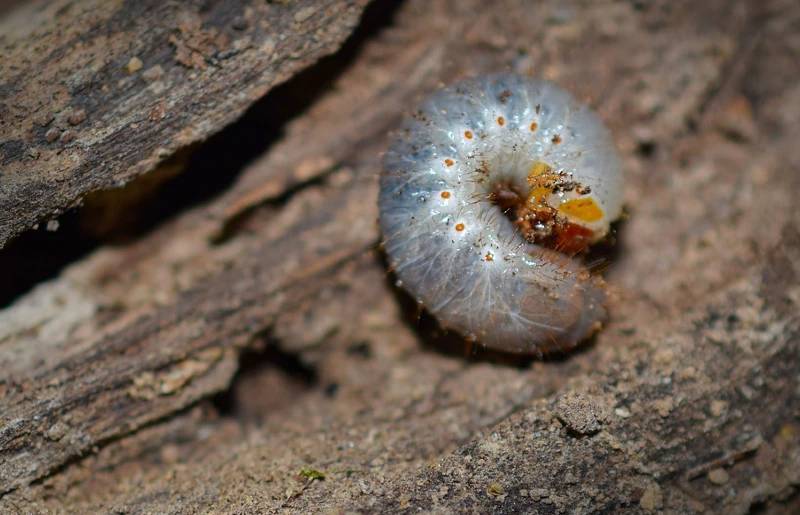French Mastiff vs English Mastiff: The Differences (With Pictures)
Updated on
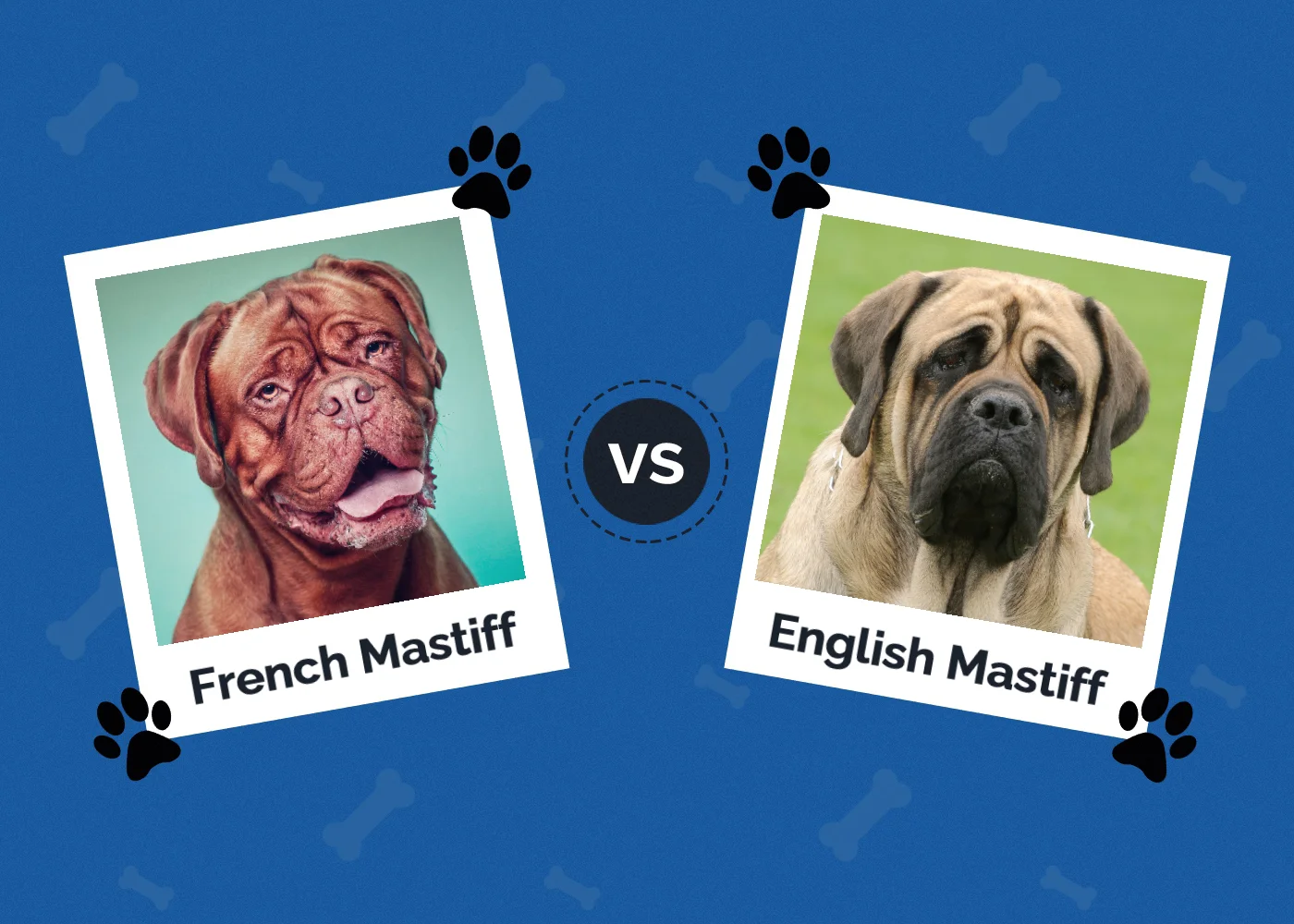
Despite their intimidating size and appearance, Mastiffs are amazing and grandiose creatures that have loving and gentle souls, and they are incredibly sensitive. While Mastiffs generally are all ideal family dogs, there are some differences between French Mastiff (also known as Dogue de Bordeaux) and English Mastiffs. You may have wondered which of these two dogs is suitable for you and your family, so read our article below, which will include the most significant differences between a French and an English Mastiff, to help you make a final decision.
Visual Differences
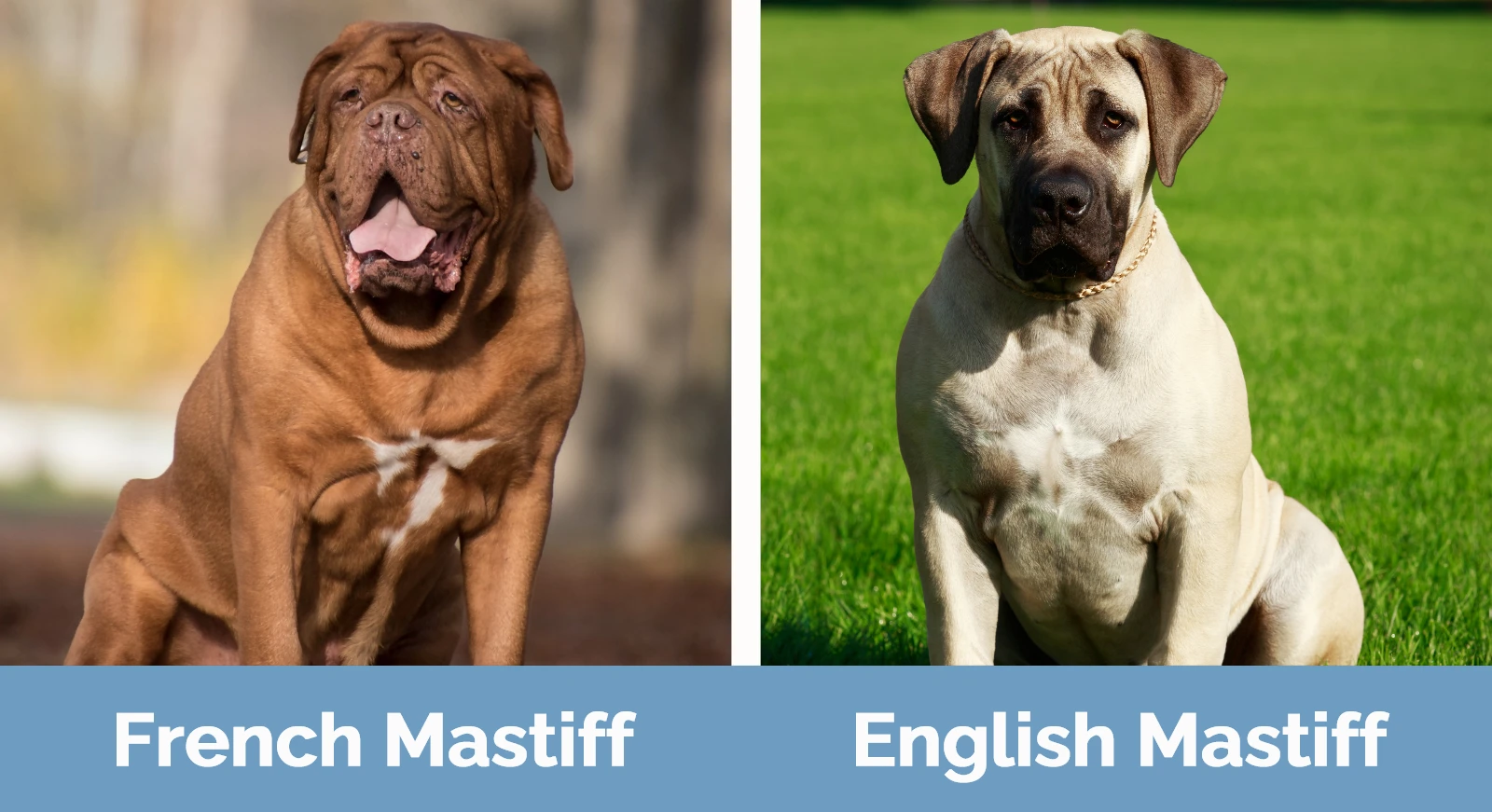
At a Glance
- Average height (adult): 23–27 inches
- Average weight (adult): 110–140 pounds
- Lifespan: 5–8 years
- Exercise: 1+ hours a day
- Grooming needs: Weekly
- Family-friendly: Yes
- Other pet-friendly: Moderately
- Trainability: Intelligent, protective, loyal
- Average height (adult): 27–30 inches
- Average weight (adult): 120–130 pounds
- Lifespan: 6–10 years
- Exercise: 1 hour a day
- Grooming needs: Weekly
- Family-friendly: Yes
- Other pet-friendly: Moderately
- Trainability: Quick learners, eager to please
French Mastiff Overview

Personality
The French Mastiff is a wonderful breed with a large heart and a gentle soul. While their size may be intimidating, they are affectionate animals. This breed is incredible with children, and their favorite activity will be snuggling with you on the couch or having gentle playtime with your kids.
Exercise
While French Mastiffs require at least an hour of daily activity, they should not be overexerted at a young age. Too much exercise is not healthy for the bones and joints of puppies that are younger than 18 months. Avoid letting them jump on and off surfaces too much at this time. Swimming is excellent for their health.

Training
Socializing and training a French Mastiff from an early age is a must. They are very sensitive dogs, so using force and aggression toward them should always be avoided. When training French Mastiffs, it is best to be firm and consistent while providing them with love and patience.
Health & Care
This breed is susceptible to bloat, volvulus, gastric dilatation, and heart and orthopedic diseases. Any reputable breeder will screen their dogs for these conditions, although as a devoted pet parent, you need to be prepared and learn the early signs of these conditions.

Suitable For:
The gentle nature of the French Mastiff makes it an amazing companion for families, even those with young children. While their size may seem scary and intimidating, they are incredibly gentle with kids, they will protect them and will enjoy playing and cuddling with them. They are ideal for larger homes or homes with backyards where they can freely walk around and run.
- Minimal barking
- Incredibly loving and affectionate
- Amazing with children
- Protective and loyal
- Low maintenance
- Short life span
- Prone to some serious health conditions
- They tend to be stubborn
English Mastiff Overview
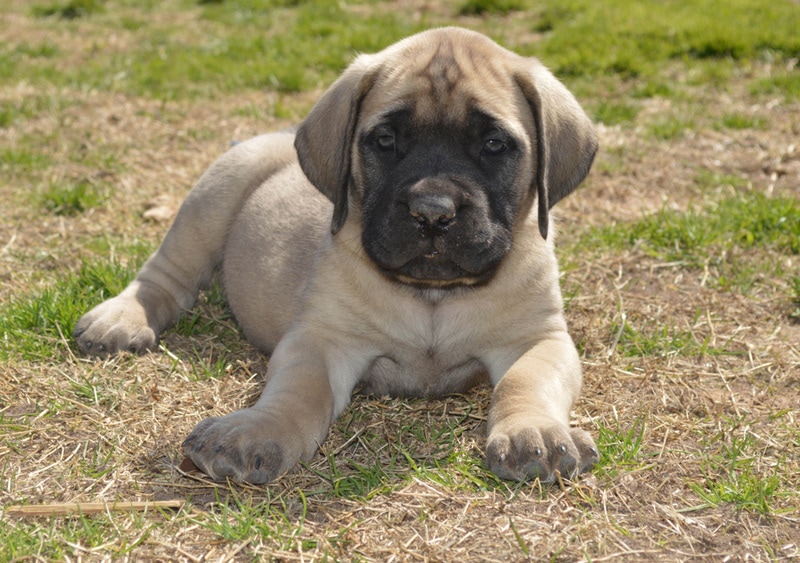
Personality
While the English Mastiff is caring and loving, it is also highly protective of its family. You will notice its protective nature when strangers come to your home and they begin showing reserved behavior. They are eternally loyal to their family and would do anything to keep their family members safe.
Exercise
Mastiffs require regular exercise and at least an hour of daily activity. However, Mastiffs are generally content in most environments, so they will also enjoy living in an apartment provided they get sufficient exercise. Be careful with young Mastiff puppies, not letting them climb up and down the stairs and minimizing jumping down from furniture. Walking two to three blocks is sufficient when they are still puppies.
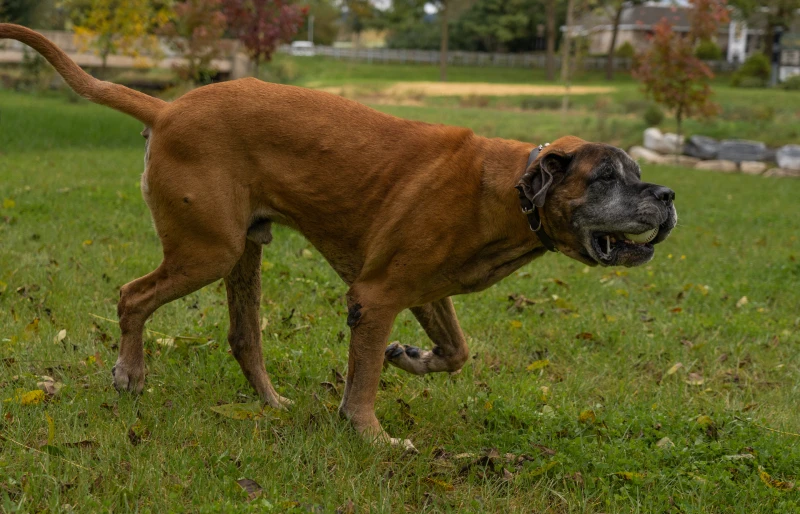
Training
Training and socializing Mastiffs from an early age is crucial. It is important to expose Mastiffs to plenty of new people and situations and let them adjust from an early age. They are very sensitive creatures, so instead of yelling at them during training, focus only on using positive reinforcement. They are excellent at reading your body language, so make sure to stay calm during training sessions and provide various fun activities for them to learn.
Health & Care
Mastiffs are prone to some heart diseases, various allergies, hip dysplasia, degenerative myelopathy, and even epilepsy. They are also quite prone to bloat, which can become a serious condition if left untreated. It is caused by the swelling of the stomach and often even leads to twisting, which can quickly turn fatal, so you need to be able to recognize the first symptoms as soon as they appear and act fast in treating them.

Suitable For:
An English Mastiff is very affectionate with its family and an excellent furry companion for children. Because of its large size, this breed is not the most ideal for small children. While these dogs will enjoy laying around and cuddling all day long, they will be happier if daily exercise is included as well. They are convenient for larger houses and can even live happily in apartments.
- Low maintenance
- Protective and loyal
- Excellent with children
- Easy to train
- Not suitable for toddlers because of their size
- Drool a lot
- Prone to some health issues
- Short life span
Which Breed Is Right for You?
When thinking about the ideal breed for you, both French and English Mastiffs are unique dogs that can provide their owners with unconditional and eternal love. They are both protective and loyal and amazing for families with children. While both dogs are excellent guardians, the French Mastiff is a little bit more protective than the English Mastiff. However, the French Mastiff is much smaller in size, allowing him to play safely even with young children and enjoy more daily activities.
Now that you know these and all the other minor differences, you should be able to pick out the ideal Mastiff for you and your family.
Related Reads:
- Tibetan Mastiff vs. English Mastiff: The Main Differences (With Pictures)
- English vs American Mastiff: The Differences (With Pictures)
Featured Image Credit: Left – French Mastiff (David Charles Cottam, Shutterstock) | Right – English Mastiff (Waldemar Dabrowski, Shutterstock)



